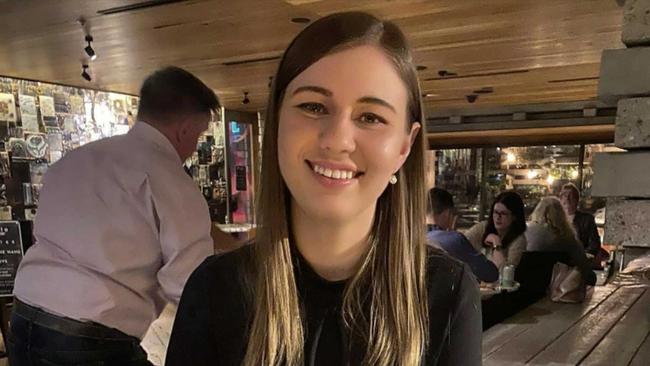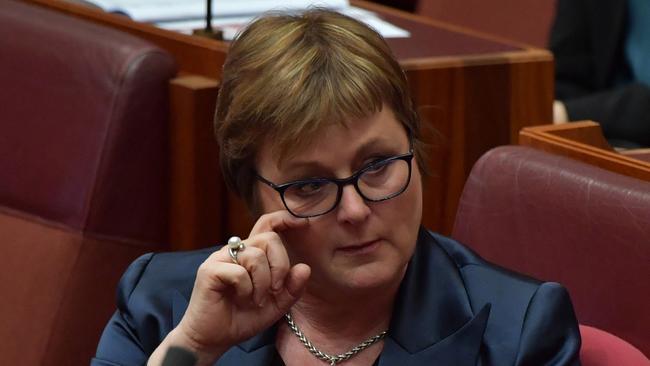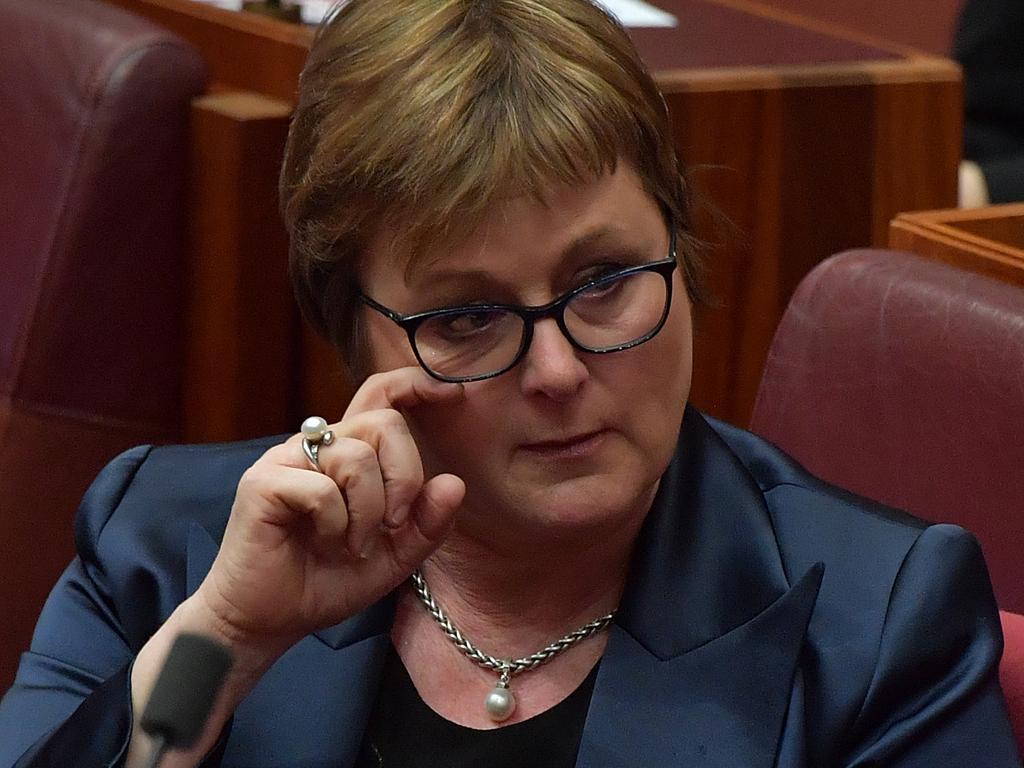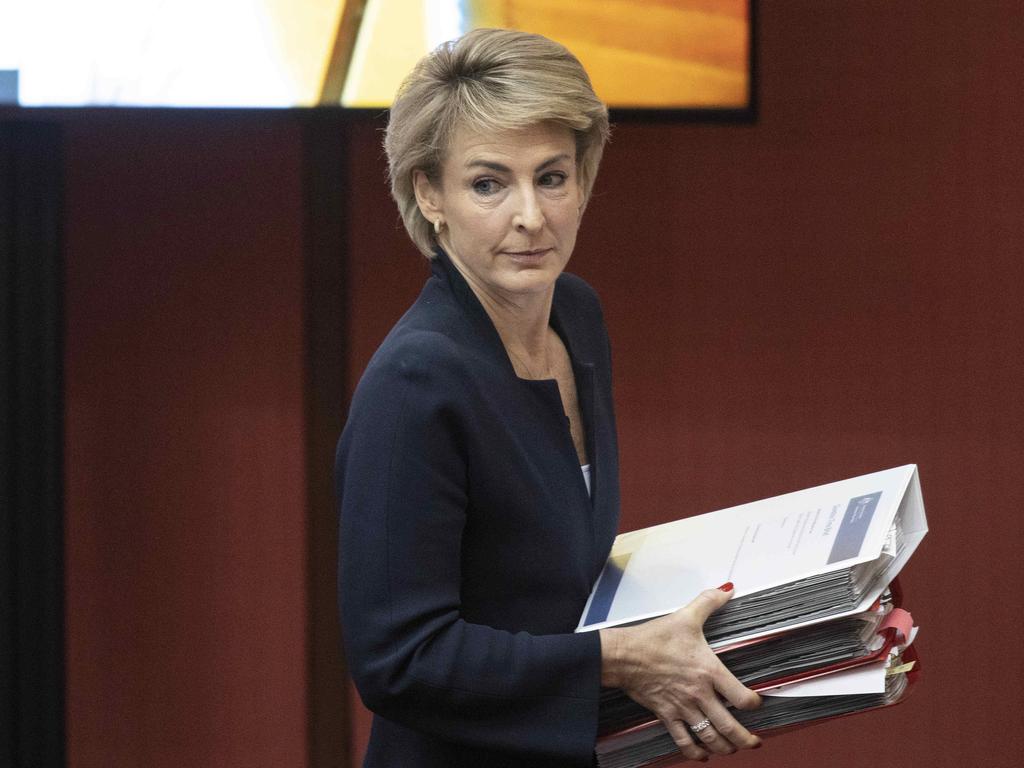This is not a sex scandal. Brittany Higgins experienced the barbarous side of power
The Brittany Higgins case is not a sex scandal. It’s far uglier, more subtle and dangerous than that.

It’s not a sex scandal. It’s far uglier, more subtle and dangerous, more damning and insidious than that.
Here is what we know: late on the night of March 23, 2019, a group of political staffers – the nation’s finest graduates, from schools that offer politics, languages, philosophy and law, all of them bright and bushy-tailed – went out drinking in Canberra.
Brittany Higgins, who was 24-years-old at the time, had four weeks earlier landed what she had described as her “dream job” working for a minister.
At some point in the evening, she decided she’d had enough – they can get pretty wild, those nights in Canberra – and accepted a ride home with an older, more senior colleague.
Instead of taking her home, they headed to Parliament House.
The grand halls were locked up for the day, and these drinkers didn’t have security passes.
Amazingly, the man somehow talked Parliament House security not only into letting them in, but into unlocking the door of Senator Linda Reynolds’ office.
She was Defence Industry Minister at the time. Is there a more sensitive office? Maybe one.
The man took Higgins inside. In interviews this week, she said she fell asleep and woke up to find the man having sex with her.
“I woke up mid-rape essentially,” she said. “I started crying … I couldn’t get him off and I couldn’t stop it.”
She can’t precisely remember what happened next, but at least one security guard can.
According to reports on news.com.au, he has told investigators that security went to check on Higgins’ welfare that night.
On one hand, they had no choice: they had unlocked the door to the minister’s office meaning they had to make sure the visitors locked it again.
But Parliament House CCTV also showed the man leaving the building, without the young woman.
Where was she?
Concerned, the guards went to Reynolds’ office, and found Higgins in a disorientated state, and only partly clothed.
Gossip about the incident spread like wildfire.
We know that Reynolds was quickly informed, because she sat down with Higgins in the first week of April. Higgins says she told the Minister – her boss, by the way, so can you even imagine her discomfort? – what had happened.

She also said she didn’t want to report the matter to police.
At this point, we might once have expected the blunt-headed yokels in the audience to start hollering: well, then, did it really happen the way she said it happened? Maybe she made it all up!
But it’s not like Higgins’ account is even remotely implausible. Indeed, it reads very real.
If you still have doubts, turn around and ask the woman nearest to you: does this sort of thing happen all the time?
Yes, she’ll say, women get pinched and squeezed and touched and propositioned by their colleagues all the time, and if they happen to be out, and drunk, and there’s else nobody around – or sometimes even when there are other cheering blokes around – they also get assaulted. The drunker the woman is in such circumstances, the better, really.
And why do women not go to the police?
Guilt, shame, fear.
Let’s take them one at a time.
Guilt because they’ve been told since they were little girls that these things happen, and since nobody is going to help them; and since the ramifications can be lifelong in terms of mental health, and low self-esteem and – less importantly, although it never seems that way at the time – career progression, they start to wonder: did I bring this on myself? Because I got drunk?

And I went there with him, didn’t I? I sat down on the couch. And then I sort of passed out, and I guess I don’t really know what happened next, except that when I woke up, and I couldn’t seem to stop what was happening, and why, why, why did I drink so much?
Fear, of the attack itself, which will tend to keep flashing back into a woman’s mind; because she knows instinctively how much worse it might have been; because she thinks the incident will harm her prospects not just in the job she has, but the ones she wants one day; of everyone finding out; of not being believed; of people thinking she’s a bit of a slut; of him being more senior, more powerful, and better-connected, and therefore in a position to harm her further.
Shame, because … well, this is a tricky one, but it’s worth confronting because shame is such a powerful force, when it comes to shaping women’s behaviour.
Girls are encouraged from the earliest age to feel ashamed of themselves. Shame encourages an internal dialogue, which often goes something like this:
What am I worth?
Not that much.
Wasn’t that just proven to me on the couch?
Shame – feeling dirty, used, discarded – can have a profound impact on how a woman sees herself in the aftermath of an assault, too.
It’s hardly uncommon for victims of sex crimes to think: “I don’t want to be interrogated about this. I just want to put it behind me and try to get on with my life.”
And so, when the boss – a minister in the federal government – asks a young woman in her first month on the job what she wants to do, she might say: nothing.
It’s okay. I’m fine.
A trained, compassionate professional from, say, the Sex Crimes Unit, might receive a different answer.
But not if they’re not called.
So, given that no charges were ever laid, how did this incident come to light?
A fortnight ago, Higgins happened to see the mighty Grace Tame – the Australian of the Year – up on the stage, collecting her award.
In her speech, Tame reminded everyone that the man who raped her – a former teacher, who groomed her from the age of 15 – used to say: “Don’t tell anybody. Don’t make a sound.”
“Well hear me now,” she cried.
And Higgins decided to speak up, too.
Media scrutiny has led her to discover things about that night in Parliament House that she had no idea about, before now.
For example, she didn’t know that security guards had opened the door to Reynolds’ office to find her half-undressed, and incoherent.
It must be mortifying. But then, the more we all learn, the more the incident reeks.
One security guard – a whistleblower, who has now quit in disgust – told the government that Higgins was so drunk, she struggled even to sign her name when she arrived at Parliament House.
Then she’s found blacked out, and with her skirt up, so something has clearly happened.
Two days later, the Department of Finance sent cleaners into Reynolds’ office.
This may sound like the scrubbing of a potential crime scene to you, but Department of Finance officials insist they had no idea a crime may have taken place.
They were simply told to clean the place up before the Minister got in for work on Monday because some drunken revellers had gotten in the night before, they say.
But those who had seen the security footage of Higgins entering the building, and then not leaving, remain concerned about this rapid clean-up.
And then we have Scott Morrison responding with remarks not just odd, but weird and cold.
“I ran it past my wife,” he said, “who told me to imagine something similar happening to one of our daughters.”
Of course he then felt outraged.
But we don’t have to imagine Higgins as somebody’s daughter. She is a human being in her own right.
Which brings us to Reynolds, who said she tried to offer Higgins her “full support” in the aftermath of the incident.
“My sole desire has been to let Brittany herself determine how this matter would be dealt with,” she said.
And now you can again hear the apologists howling: “Isn’t that what we’ve all been told to do? Let the victim decide?”
Yes, it is important for victims of sexual assault to feel empowered.
Who among all these senior people, among them government ministers, senior staff and, indeed, many powerful women, encouraged such feelings in Higgins?
She told her boss that she was passed out drunk when she woke to find a senior colleague assaulting her.
It is difficult to imagine consent being present, given her level of drunkenness, and when consent is absent, it’s not sex, it is rape.
In terms of corroboration, she was in a much stronger position than many other victims of sexual assault: there is CCTV of the state she was in, and the testimony of the guards.
Then comes the scrubbing of the crime scene, and the mollification of the witnesses, among them the victim.
So let’s call this by its name, shall we?
This is not a sex scandal.
This is a monstrous, criminal scandal. Savage, brutal, and cruel, and yet in terms of the ways in which young women routinely experience power in Australia? Depressingly familiar.







The federal parliament has this week been engulfed by what has been described as a sex scandal.